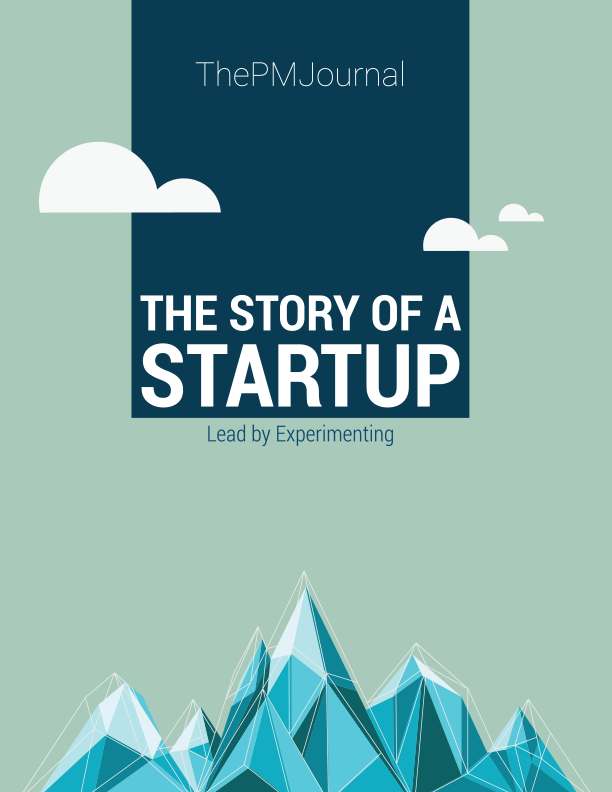A Discussion with a Man of Marketing
Posted on September 20, 2012 by ThePMJournal
“The 30 minutes morning meeting” lasts longer than expected, because one of our Experts in Marketing and Sales get a long and “emotional” speech about marketing strategy. In the end of his monologue, I realized I din’t understood nothing. I was in the same time “fascinated” and resentful how can anyone talk more than an hour, without saying nothing concrete?
-Excuse me, can you please summarize in one sentence what did you want to say? Can you formulate an UPS (Unique Selling Proposition)?
-You didn’t pay attention. That’s I am doing for almost one hour, reply the Expert.
-Sincerely, I was trying to understand you, but your presentation has anything to do with our product. For example, you talk about features we don’t have and for a brief moment I had the impression you describe another application…
-Well… it means you don’t understand the product you are working for…
-I created this product from scratch, so how could I be wrong?
And this apparently “normal” debate about our product was the beginning of a long philosophical discussion between me and the Expert, that never ended (it still continues today)… How could a simple question can trigger so many tough remarks?
The conflict is originated from another story happened few months ago. As the company representatives, me as a Product Manager and The Expert as Customer Relationship Manager, we have invited one of the business partner executive to a presentation about the mathematical model behind platform we have developed. When I was just about to begin my presentation, the Marketing Expert (one of the four Magnificents Experts) interrupted me and took the lead of the presentation assuming the role of Product Manager. Although he had a good presentation, his information about product were a little ambiguous and incorrect, mainly because he didn’t know the product too well. Our client, being a novice in computer software industries, have shown up very confused about the functionality of our product. As a Product Owner, I felt indebted to offer some explanation about the product. After the meeting, The Expert confessed me he felt offended about my attitude: Why did I interrupt him and correct him during the presentation?
This incident marked our relation forever: each time we were in the same meeting, The Expert tried in different ways to put me in the wrong posture and, with the first occasion, he complained to CEO I sabotaged his effort to sell our products. I tried to bring arguments in my defense, but the friendship between CEO and the Expert proved to be more important than any of my argument…
Several months I was forbidden, by the CEO, to participate at products presentations with strategic partners. It was a very tough experience. But it was one of the lessons I need to learn in this way.
After five month from the incident, Mr. Expert didn’t manage to bring any strategic partner in our loyalty scheme. The poor results were not exclusively because I was not invited to product presentations, but I couldn’t help asking myself how the things would have been, if I would have been invited on those meetings?
In my absence, I imagined how Mr. Expert lead the presentation of my product (the dialogues are fake, but are based on some real events and notes from Mr. Expert Sales Pitch):
-We have a proposals just for you! Our revolutionary product will help you to promote your business and to loyal customers. Out application could “read” your clients thoughts, your thoughts, competitors thoughts! said The Expert.
-Wow! Knows to make also fried eggs? ask ironically The Client.
-And much more! Knows to make also Chickens! reply The Expert while the client eyes started out of his head. Then, The Expert continues: Do you know the ancient question What was at the beggining: the Egg or the Chicken? (this causality dilemma “Chicken or the Egg”, was used as a burden in CEO speeches, then copied and used in abuse by Marketing and Sales Experts in negotiation tactics).
-Sounds familiar… What is all about?
-Exactly! Our product responds the the same question… answer elusively The Expert.
-Interesting… And how much this toy costs?
-Well, it doesn’t cost you nothing! You only need to be our partner! We promote your products, we loyal your clients, we make everything for you for free! reply triumphant Mr. Expert.
-Such an offer cannot be refused! We have a deal! said The Client.
Just only one day after, Mr. Expert calls The Client again:
-I come back with an update… You know… I have spoken with one of my colleagues (a.n. its about me) and told me there is however a small cost need for technical integration.
-Hmm… And what is about?
-I don’t have the answer right now, I need to consult first my colleagues from Product Development. I am sorry I could not provide you this information right now, but I promise you I will come back ASAP with a phone call.
-Very good, very good… when you find out contact me! replied confused Client.
And that was the last time when our client representative ever answered to our phone call.
Coming back in the present, during the meeting with steering committee I rise the following question:
-How can you sell a product without knowing it?
-Its not important to know the product, is important how you present the product! intervene the CEO. 20 years ago, while I was in Wild America… Oh my God, what times!?… I could sell anything, even the Devil itself, although I didn’t have a clue what I was selling…
The CEO story continue with a series of comic events and the rest of us listening him we almost forgot the reasons we gathered in the meeting. The outcome of the story was “unexpected”:
-Well… Everyone knows what to do! Good luck with your work!
After the CEO talk all the stories of the “Outlaw Marketeer” from Wild West, we woke up by “Good luck with your work!“. We look one to another, because no one known what to do next… but we thanks God “the 30 minutes meeting”, that lasted 3 hours, finally ended.
The answer to question: “How can you sell a product without knowing it?” I haven’t received yet. What CEO and Marketing Expert tried to communicate to shareholders was the lack of performance in sales and marketing is exclusively due to the product I had conceived. Although the shareholders were aware of the fact the failure of our company is mainly because of poor sales, the general impression at that time was I am guilty for the failure of the company.
So, here are my conclusions based on this story:
- Do not debate with a man of Marketing; his mind is more fresher than yours!
- Man of Marketing, even he doesn’t know what he talks about, always seems to be right!
Following: Master of Puppets.
Previous: Project Manager. To be or not to be?.









Be the first to leave a comment